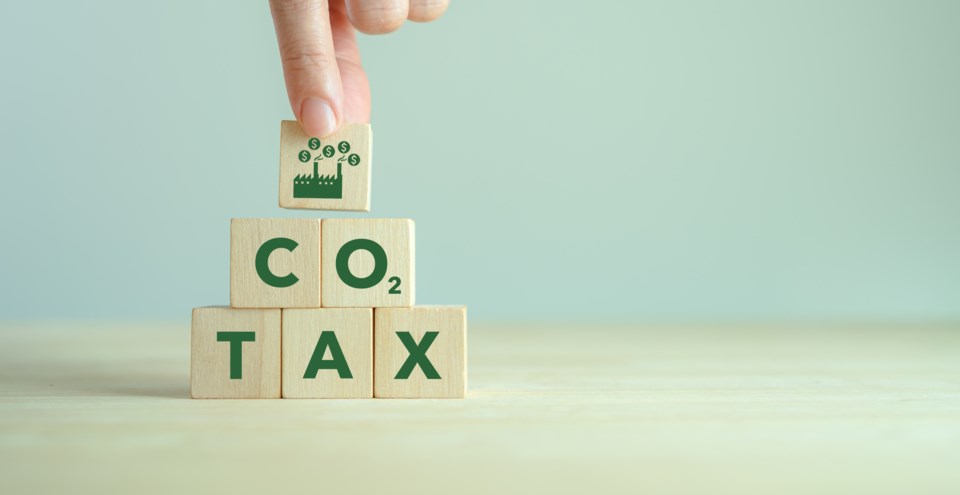The past two years have provided plenty of opportunities for British Columbians to focus on environmental issues. Following the end of the COVID-19 pandemic, forest fires, floods and climate change have been in the news more often.
The latest survey conducted by Research Co. and Glacier Media outlines an increase in the personal concern of British Columbians on 10 different environmental problems.
At least two-thirds of the province’s residents are worried about four of them: Climate change (71 per cent, up eight points since October 2020), the pollution of rivers, lakes and reservoirs (70 per cent, up four points), the pollution of drinking water (69 per cent, up four points) and air pollution (66 per cent, up one point).
Majorities of British Columbians are also personally concerned about the contamination of soil and water by toxic waste (64 per cent, up four points), the extinction of plant and animal species (63 per cent, up five points), deforestation (62 per cent, up four points), the maintenance of the supply of fresh water for households (also 62 per cent, up seven points), the depletion of fish stocks through overfishing (61 per cent, up three points) and the loss of tropical rain forests (58 per cent, up three points).
This heightened level of concern coincides with a rise in perceptions that elected officials are not acting properly. More than two in five British Columbians believe three levels of government are not paying enough attention to the environment: Federal (46 per cent, up five points), municipal (44 per cent, up six points) and provincial (43 per cent, up eight points).
Looking at our results, we see a public that is more aware and looking for action. One thing that has changed dramatically is our collective view of the B.C. carbon tax that came into force in July 2008 during the second term of the Gordon Campbell government. Three years ago, 36 per cent of British Columbians said the carbon tax had negatively affected the finances of their household. In 2023, the proportion has jumped to a whopping 62 per cent.
The province’s residents who voted for the BC Liberals in the 2020 provincial election are more likely to say they experience a negative effect (70 per cent) than those who cast ballots for the BC Green Party (53 per cent) or the BC New Democratic Party (NDP) (52 per cent).
We must remember that the provincial carbon tax was implemented after a splendid campaign that made an appeal to British Columbians to do more about the planet. The arrival of a rebate cheque to make every home more environmentally friendly also helped.
As the years go by, our sentiments change. In October 2019, 45 per cent of British Columbians felt that the carbon tax had made residents more mindful of their carbon consumption and led to a change in behaviour. A year later, the proportion fell to 37 per cent. In 2023, it has plummeted to 28 per cent. More than three in five residents of the province (61 per cent, up 12 points) think this goal of the carbon tax has not materialized.
Skepticism about the carbon tax changing the behaviour of residents is particularly high among British Columbians aged 55 and over (71 per cent), but drops among those aged 35 to 54 (60 per cent) and among those aged 18 to 34 (48 per cent). The youngest British Columbians, who have lived practically their whole adulthood with a carbon tax, are more likely to still regard it in a positive light.
There has been some talk about what could happen to the provincial carbon tax if the Conservative Party forms the government after the next federal election and follows through on its pledge to abolish the federal version. At this stage, residents of the province are split. For 40 per cent of British Columbians, the provincial carbon tax should be kept. For 43 per cent, it should be scrapped.
There is some nuance in the degree of support and opposition to retaining the policy. Just over one in four British Columbians would “definitely” scrap the provincial carbon tax, while a smaller proportion (16 per cent) would “definitely” keep it.
The federal campaign expected in 2025 may present a unique situation: A federal party actively campaigning on abolishing a provincial piece of legislation. It is too early to figure out how the provincial government would react to such a scenario, but our views on the provincial carbon tax are not as rosy as they were in 2008 and 2011, when the Stephen Harper-led Conservatives criticized Stéphane Dion’s “Green Shift” and Michael Ignatieff’s “cap-and-trade” without decrying British Columbia’s decisions.
Right now, while most British Columbians are personally concerned about environmental issues, they are starting to question the carbon tax. We do not have a majority of residents in favour of abandoning it, but if we continue to see more than three in five of them regarding the carbon tax as a drag on household finances, the temptation to do something about it – for both provincial and federal politicians – will be immense.
Mario Canseco is president of Research Co.
Results are based on an online study conducted from Oct. 12-14, 2023, among 800 adults in B.C. The data has been statistically weighted according to Canadian census figures for age, gender and region in B.C. The margin of error is plus or minus 3.5 percentage points, 19 times out of 20.






